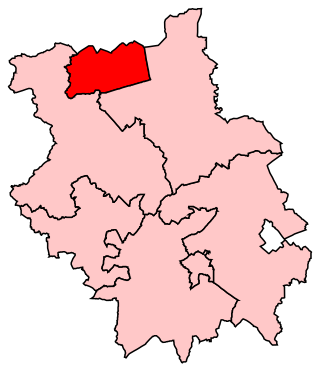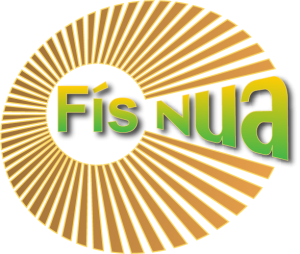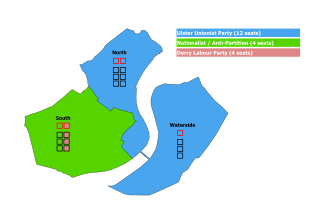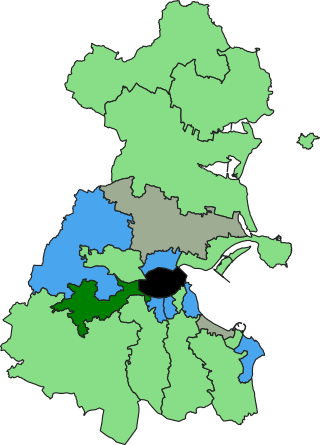Council composition following election
| Party | Seats | ± | Votes | % | ±% | |
|---|---|---|---|---|---|---|
| Irish Nationalist | 56 | |||||
| Labour | 9 | |||||
| Irish Unionist | 5 | |||||
| Independent | 5 | |||||
| Sinn Féin | 4 | |||||
| Totals | 79 | 100% | — | |||
An election to Dublin Corporation took place on Thursday 15 January 1914 as part of that year's Irish local elections.
Prior to the election Dublin had been the scene of a major industrial dispute in the form of the Dublin Lock-out, and the election saw the newly created Labour Party emerge as the councils second party. One council seat was left vacant. [1]
| Party | Seats | ± | Votes | % | ±% | |
|---|---|---|---|---|---|---|
| Irish Nationalist | 56 | |||||
| Labour | 9 | |||||
| Irish Unionist | 5 | |||||
| Independent | 5 | |||||
| Sinn Féin | 4 | |||||
| Totals | 79 | 100% | — | |||
| Party | Candidate | Votes | % | ±% | |
|---|---|---|---|---|---|
| United Irish League | Mr J. M. Gallagher (incumbent) | 939 | 77.22 | ||
| Independent Socialist | Mr Walter Carpenter | 277 | 22.78 | ||
| Majority | 662 | 54.44 | |||
| Turnout | 1,216 | 57.69 | |||
| United Irish League hold | Swing | ||||
| Party | Candidate | Votes | % | ±% | |
|---|---|---|---|---|---|
| Irish Nationalist | Mr J. J. Farrell (incumbent) | 1,350 | |||
| Labour | Arthur Murphy | 975 | |||
| Majority | 375 | ||||
| Turnout | |||||
| Irish Nationalist hold | Swing | ||||
| Party | Candidate | Votes | % | ±% | |
|---|---|---|---|---|---|
| Irish Nationalist | Rt. Hon. Lorcan Sherlock (incumbent Lord Mayor) | 1,672 | |||
| Labour | J. J. Campbell | 716 | |||
| Majority | 956 | ||||
| Turnout | |||||
| Irish Nationalist hold | Swing | ||||
The ward was previously held by Thomas O'Hanlon, a Labour member, however O'Hanlon was unable to be nominated due to not appearing on the electoral register. [3]
| Party | Candidate | Votes | % | ±% | |
|---|---|---|---|---|---|
| Irish Labour | Henry Donnelly | 617 | 59.04 | ||
| Joseph Gleeson | 417 | 39.90 | |||
| Patrick Joseph McIntyre (withdrew) | 11 | 1.05 | |||
| Majority | 200 | ||||
| Turnout | 1,045 | ||||
| Irish Labour hold | Swing | ||||
| Party | Candidate | Votes | % | ±% | |
|---|---|---|---|---|---|
| Home Ruler | Andrew Beattie D.L. (incumbent) | 337 | |||
| Independent Nationalist | Timothy Joseph Sheil | 333 | |||
| Majority | 4 | ||||
| Turnout | 670 | ||||
| Home Ruler hold | Swing | ||||
| Party | Candidate | Votes | % | ±% | |
|---|---|---|---|---|---|
| Irish Labour | William Chase | 667 | 61.93 | ||
| United Irish League | Francis Cole | 410 | 38.07 | ||
| Majority | 257 | 23.86 | N/A | ||
| Turnout | 1,077 | ||||
| Irish Labour gain from Irish Nationalist | Swing | ||||
| Party | Candidate | Votes | % | ±% | |
|---|---|---|---|---|---|
| United Irish League | Peter O'Reilly (incumbent) | 1,332 | |||
| Irish Labour | Thomas Irwin | 1,089 | |||
| Majority | 243 | ||||
| Turnout | |||||
| United Irish League hold | Swing | ||||

George Lansbury was a British politician and social reformer who led the Labour Party from 1932 to 1935. Apart from a brief period of ministerial office during the Labour government of 1929–31, he spent his political life campaigning against established authority and vested interests, his main causes being the promotion of social justice, women's rights, and world disarmament.

Margaret Grace Bondfield was a British Labour Party politician, trade unionist and women's rights activist. She became the first female cabinet minister, and the first woman to be a privy counsellor in the UK, when she was appointed Minister of Labour in the Labour government of 1929–31. She had earlier become the first woman to chair the General Council of the Trades Union Congress (TUC).
Rory O'Hanlon is an Irish former Fianna Fáil politician who served as Ceann Comhairle of Dáil Éireann from 2002 to 2007, Leas-Cheann Comhairle of Dáil Éireann from 1997 to 2002, Minister for the Environment from 1991 to 1992, Minister for Health from 1987 to 1991 and Minister of State for Social Welfare Claims in 1982. He served as a Teachta Dála (TD) for the Cavan–Monaghan constituency from 1977 to 2011.

Eamon Gilmore is a European Union diplomat, and an Irish former Labour Party politician. He serves as European Union Special Representative for Human Rights since February 2019. He is also the European Union Special Envoy for the Colombian Peace Process since 2015. He was Ireland's Tánaiste and Minister for Foreign Affairs and Trade from 2011 to 2014, Leader of the Labour Party from 2007 to 2014, Chair of the Organization for Security and Co-operation in Europe from 2012 to 2013, Minister of State at the Department of the Marine from 1994 to 1997. He was a Teachta Dála for the Dún Laoghaire constituency from 1989 to 2016.

Daniel Desmond Sheehan, usually known as D. D. Sheehan was an Irish nationalist, politician, labour leader, journalist, barrister and author. He served as Member of Parliament (MP) in the House of Commons of the United Kingdom of Great Britain and Ireland representing Mid-Cork from 1901 to 1918, a constituency comprising the districts of Ahadallane, Ballincollig, Ballyvourney, Blarney, Coachford, Farran, Inchigeelagh, Macroom, Millstreet and Shandangan. As co-founder and President of the Irish Land and Labour Association, he was credited with considerable success in land reform, labour reforms and in rural state housing. From 1909, he was General Secretary of the Central Executive of the All-for-Ireland League, favouring a policy of National reconciliation between all creeds and classes in Ireland. During World War I he served as Irish regiments officer with the 16th (Irish) Division in France, 1915–16. He resigned his parliamentary seat in 1918 and lived in England for several years, returning to Dublin following the ending of the civil war, when he was appointed editor of the Dublin Chronicle.

Tamworth is a constituency represented in the House of Commons of the UK Parliament, based on the town of Tamworth in Staffordshire, England. The seat is currently represented by Sarah Edwards of the Labour Party, following a by-election in October 2023. It was previously held by Chris Pincher of the Conservative Party, who held the seat from 2010 to 2023, when he resigned. He had been suspended from the party since July 2022.

Peterborough is a borough constituency represented in the House of Commons of the Parliament of the United Kingdom since 2019 by Paul Bristow of the Conservative Party.

Elizabeth Margaret Braddock was a British Labour Party politician who served as Member of Parliament (MP) for the Liverpool Exchange division from 1945 to 1970. She was a member of Liverpool County Borough Council from 1930 to 1961. Although she never held office in government, she won a national reputation for her forthright campaigns in connection with housing, public health and other social issues.

An election to the County Council of London took place on 5 March 1913. It was the ninth triennial election of the whole Council. The size of the council was 118 councillors and 19 aldermen. The councillors were elected for electoral divisions corresponding to the parliamentary constituencies that had been created by the Representation of the People Act 1884. There were 57 dual member constituencies and one four member constituency. The council was elected by First Past the Post with each elector having two votes in the dual member seats. Unlike for parliamentary elections, women qualified as electors for these elections on exactly the same basis as men. Women were also permitted to stand as candidates for election.

Fís Nua is a minor environmentalist political party in Ireland.
The Workers Revolutionary Party is a Trotskyist group in Britain once led by Gerry Healy. In the mid-1980s, it split into several smaller groups, one of which retains possession of the name.

The 1920 Dublin Corporation election took place on Thursday 15 January 1920 as part of that year's Irish local elections. 80 councillors to Dublin Corporation were elected from 10 borough electoral areas on the system of proportional representation by means of the single transferable vote (PR-STV) for a five-year term of office.

An election to Dublin Corporation took place in March 1902 as part of that year's Irish local elections. The election saw a small decline in Labour representation, whilst the Nationalists continued their dominance of the council.
An election to Dublin Corporation took place in March 1911 as part of that year's Irish local elections. The election saw a decline for Sinn Féin, with the Unionists regaining their position as the councils second party.

Elections to Londonderry Borough Council were held on 16 October 1946. The Ulster Unionist Party (UUP) retained their majority with Sir Basil McFarland continuing as Mayor of Londonderry. The elections were postponed from the original February date due to an unusually large number of objections to the list of electors.
The 1920 Kingstown Urban District Council election took place on Thursday 15 January 1920 as part of that year's Irish local elections.
The 1914 Dublin County Council election was held on Monday, 8 June 1914.
Elections to the Kingstown Urban District Council took place on Thursday 15 January 1914 as part of that year's Irish local elections. The election resulted in a shock defeat for the Unionists, who prior to the election had majority control of the council.

The 1899 Dublin County Council election was held on 6 April 1899. The election was peaceful, however rain prevented many voters from travelling to polling stations. The election was held alongside other local elections across Ireland.

Cardiff County Borough Council, known as Cardiff City Council after Cardiff achieved city status in 1905, was the elected local authority that administered the town and county borough of Cardiff, Glamorgan, Wales between 1889 and 1974. The county borough council was replaced in 1974 by a district council, covering part of South Glamorgan and also known as Cardiff City Council.